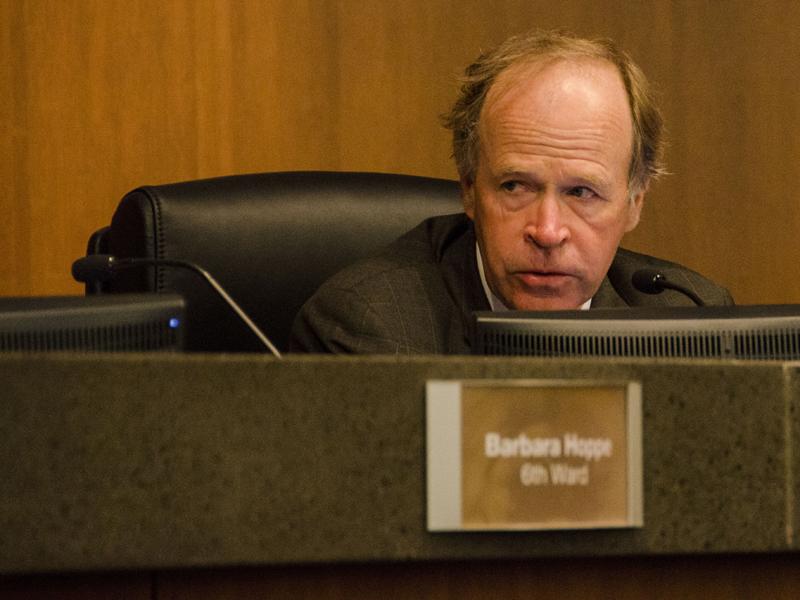After serving as mayor for three years, Mayor Bob McDavid will face challenger Sid Sullivan in April in the municipal elections.
McDavid and Sullivan opposed each other in the 2010 municipal election where McDavid received 54.2 percent of the vote, while Sullivan received 12.1 percent.
Sullivan decided to run again because of the lack of change he’s seen in City Council since he first sought out the position, Sullivan said.
“A lot of the issues I raised back then are still around,” Sullivan said. “We still don’t have a strong, transparent, data-driven government. There’s been a lot of missteps.”
This election will be different this year because now citizens have had a taste of McDavid as a mayor, Sullivan said.
“I think McDavid has a record now,” Sullivan said. ” A lot of people are dissatisfied with his lack of engagement. There were also six candidates in the field last time and now it’s one-on-one.”
In his time in office, City Council brought a different perspective of government, McDavid said.
“I think we brought a different culture or different way to look at the way government works,” McDavid said. ” … I came with experiences and a skill set that really focused on metric-driven decisions. Government typically doesn’t have that. So, it’s been interesting to kind of interject that into the system.”
McDavid cites revamping the city’s pension plan for city employees, police officers and firefighters as one of the council’s successes since he’s been in office.
“We have completely revised the pension plan system and taken a huge financial liability off the table,” McDavid said.
With projects like this, saving money allows for more funds to go to the services citizens want, McDavid said.
“Part of the reason to run a very disciplined financial part of the city is that every dollar you save, in efficiency is a dollar more in service you can offer,” McDavid said. “So, I think creating that culture of fiscal accountability discipline, we are seeing success there.”
With the population and development continuing to grow in Columbia, Sullivan said City Council needs to figure out a plan to look at C2 zoning. Zoning needs to be looked at ahead of time, before another situation similar to the public outcry against the possible demolition of the Neidermeyer building occurs again, Sullivan said.
“The mayor and I have key differences,” Sullivan said. “He is laissez-faire capitalist, and I’m more on looking to the future and planning ahead. Columbia is a growing city and has a history of waiting for a developer to come in and then we argue about it in City Council instead of planning ahead of time.”
Both candidates have recognized the need to improve public transportation in the city.
The main challenge in trying to improve public transit is the commuter culture in Columbia, McDavid said.
“We have a certain amount of money,” McDavid said. “We’ll run as many buses as we can. We’re not going to make money on buses. When the money runs out, the buses stop … It’s sort of the chicken and the egg. You want to put the buses out there first, but we can’t. We’re trying to drive the market, get more revenue and get better service continuously.”
Within a year, the city should have state-of-the-art app system in place that will make riding transit more convenient and cost effective, McDavid said.
“This is a market-driven deal and if we produce a good enough service, I believe the university population will want it,” McDavid said.
However, Sullivan said the mayor has been too focused on trying to model transit on other cities instead of tailoring a system that best fits Columbia, Sullivan said.
“Part of the problem was the mayor introduced FastCAT without a market study,” Sullivan said. “He wanted transit to work like it did in Ames, Iowa, without finding out how it would work in Columbia. We need to set up a system that provides buses for local citizens and students and we need to find a way to increase ridership.”








